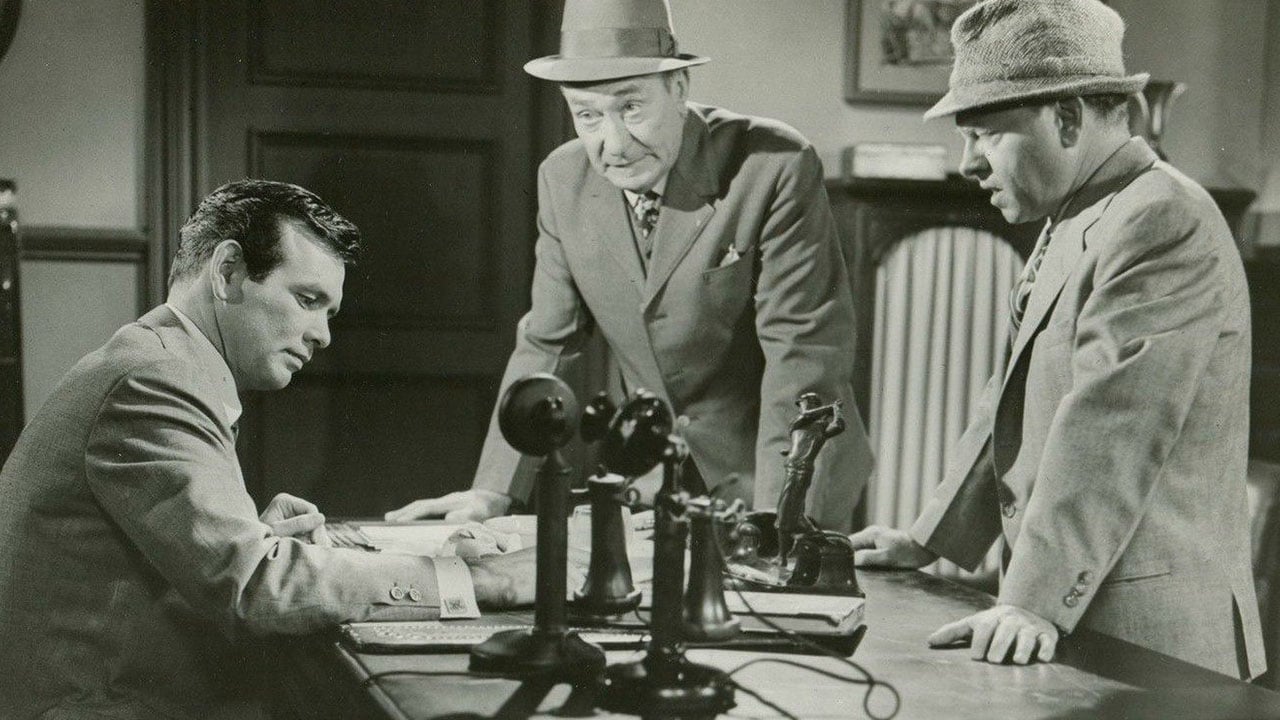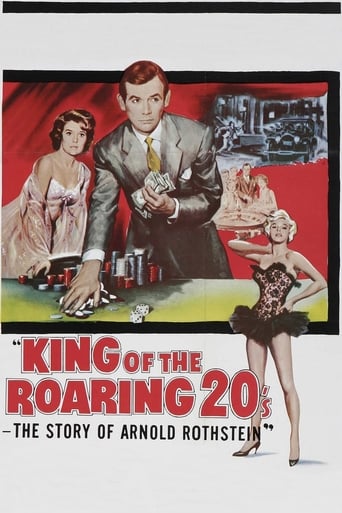

You won't be disappointed!
... View MoreThe film was still a fun one that will make you laugh and have you leaving the theater feeling like you just stole something valuable and got away with it.
... View MoreAmazing worth wacthing. So good. Biased but well made with many good points.
... View MoreThe film's masterful storytelling did its job. The message was clear. No need to overdo.
... View MoreYou would think that it might be difficult to make a dull movie about the "roaring" twenties. This movie succeeds in spades. The lead actor (TV"s The Fugitive) is as stiff and flat as any ever seen on the big screen. Most of the performance involves staring down and looking up once in awhile with a half smile.In fact only big little Mickey Rooney shows any life and thus through contrast steals the shallow show where the most exciting scene involves the transportation of a racehorse. Of all the The Untouchables rip-offs of that era this is the worst. There is very little violence, except a punch thrown now and then, and very little else worth watching in this slow as sludge, talky, unconvincing Biography. What we are left with is a TV looking widescreen film that has nothing in its scope. This movie is so bad that maybe we should turn our binoculars around just to get a laugh.
... View Morethe verdict on this picture seems to be that it's a fizzle because of Janssen's performance as Rothstein, the most interior portrayal of an organized crime figure this side of John Garfield in Abe Polonsky's magnificent FORCE OF EVIL. Well, Janssen's no Garfield and KING OF THE ROARING TWENTIES is no FORCE OF EVIL, but this Allied Artist's spin-off of the popular "Untouchables" series with Robert Stack deserves a few more props from the peeps at the IMDb website than it has already gotten. It's not quite as droll as Boetticher's very similar looking RISE AND FALL OF LEGS DIAMOND (which came out at about the same time) but the director, Joseph M Newman, is an underrated dude who, (like Joseph H. Lewis), is long overdue for cultish discovery. The scene in this picture where Mickey Rooney pleads to his childhood buddy, Rothstein, for his life is proof alone of how good he was with actors. Newman worked extensively in television, especially on the ALFRED HITCHCOCK PRESENTS series. One episode in particular, titled SEE THE MONKEY DANCE starring Efrem Zimbalist and Roddy McDowell is a marvelous example of what can be done within the imperatives of a weekly commercial format. His work deserves a little more recognition than it's been given thus far.
... View MoreWhen I first started going to the movies, I found many actors who had such charisma, I found I was overwhelmed with their persona. Thus it was when I came to select, David Janssen as my all time favorite star. I have seen every movie he has ever made. The good, the bad and the ones I believe, he should have passed by. This is one such film. I so admire Janssen that he is super cool as a private detective, like Richard Diamond, crafty as O'Hara Treasury Agent and he is ultra believable as the innocent escapee, in the TV series, The Fugitive. But although he portrayed 1920's gangster Arnold Rothstein, he is far from threatening enough to personify the infamous double dealing, backstabbing hoodlum who became notorious during the age of the flapper. Furthermore, his sidekick Johnny Burke (Mickey Rooney) played his role as an ignorant stooge and thus garnered more sympathy, than admiration. Finally there was Dan O'Hererlihy, terrific as many an Irishman, but overbearing as a corrupt cop. Ultimately, the story of Arnold Rothstein, social criminal and despicable character, will have to wait until, Hollywood finds somebody, deplorable enough to be hated for what he really was. That surely was not my favorite thespian. **
... View MoreI am hardly a fan of national film critics, but they are right on the money with this one - it stinks. One major objection is having David Janssen playing the gangster Arnold Rothstein. What kind of casting is that? He couldn't be less credible in that role. Other cast members don't fit in here, either. The whole thing is a mess. The first half hour of this movie doesn't exactly grab your attention, but when the romance sets in, it really puts you to sleep....and really never recovers. "King of the Roaring Twenties" sounds like an interesting, exciting gangster film but is just the opposite. Don't waste your time.
... View More